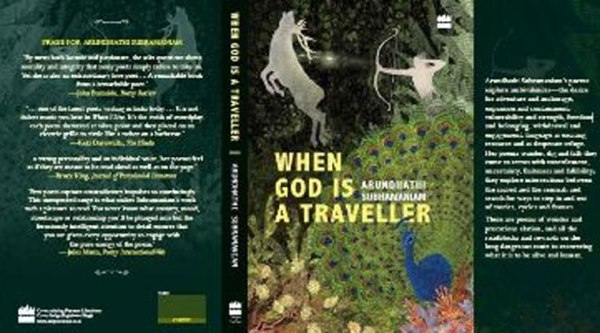Hello friends,
we know that there are many forms in which literature is being produced. Poetry, just as in other literature contributes a major role in the development of many aspects of life. The utilization of poets and poetry can serve for many different positive purposes and effects on society. Poetry may supply an essential element in man growth such as building fresh, articulate vocabulary and reasoning skills.
If we try to stretch crux of poetry as a form then one might say, If we imagine poetry as a journey, you must be willing to trust the writer to guide you. Unwilling readers will never experience every part of the adventure in the same way open minded readers do. The journey may be filled with dead ends and suffering or endless joy and happiness. And still, we go. You pick up the poem, you read, you listen, and you feel. In our culture we are experiencing a crisis where some people are the unhappiest people in the world statistically.
How do we solve this?
I answer: Mindfulness, gratitude, and poetry.
Every year since its inception in 1954, the Sahitya Akademi Award prizes to the most outstanding books of literary merit published in any of the major Indian languages recognised by the Akademi. The award amount, which was Rs.5,000 since inception, had been enhanced to Rs.10,000 from 1983, Rs.25,000 from 1988, Rs.40,000 from 2001, Rs.50,000 from 2003 and is now Rs.1,00,000 from 2009. The first Awards were given in 1955.
Last year also I prepared a blog when 'Era of Darkness' was awarded with the 'Sahitya Akademi award' to Shashi Tharoor for his outstanding satirical work. Click here to read full blog.
When God Is a Traveller
Arundhati Subramaniam
(wondering about Kartikeya/ Muruga/ Subramania, my namesake)
Trust the god back from his travels, his voice wholegrain (and chamomile),
his wisdom neem, his peacock, sweaty-plumed, drowsing in the shadows.
Trust him who sits wordless on park benches listening to the cries of children fading into the dusk,
his gaze emptied of vagrancy, his heart of ownership.
Trust him who has seen enough— revolutions, promises, the desperate light of shopping malls, hospital rooms, manifestos, theologies, the iron taste of blood, the great craters in the middle of love.
Trust him who no longer begrudges his brother his prize, his parents their partisanship.
Trust him whose race is run, whose journey remains, who stands fluid-stemmed knowing he is the tree that bears fruit, festive with sun.
Trust him who recognizes you— auspicious, abundant, battle-scarred, alive— and knows from where you come.
Trust the god ready to circle the world all over again this time for no reason at all other than to see it through your eyes.
Foregrounding the very short poem
This is a poem of wonder and precarious elation, about learning to embrace the seemingly disparate landscapes of hermitage and court, the seemingly diverse addresses of mystery and clarity, disruption and stillness - all the roadblocks and rewards on the long dangerous route to recovering what it is to be alive and human.
Wandering, digging, falling, coming to terms with unsettlement and uncertainty, finiteness and fallibility, exploring intersections between the sacred and the sensual, searching for ways to step in and out of stories, cycles and frames - these are some of the recurrent themes of this poem in general.
This poem explores various ambivalences - around human intimacy with its bottlenecks and surprises, life in a Third World megapolis, myth, the politics of culture and gender, and the persistent trope of the existential journey.
Reading the poem with reference to the Indian Poetics
From the ages, different scholars have tried to defined Kavya in different manners. Among them all, scholars have tried to discover soul of Kavya. Kavya is just like that one cannot easily define or give any punctuation marks indeed it is the experience of enjoyment. Aristotle has defined in his Poetics but it rather deals with simply two aspects or Rasas pity and fear, while Indian Poetic is easy and yet much deeper Poetics. Different Scholars have introduced various mimansas about poetics. Western Poetics deals with the result of the poetry while Indian Poetics deals with process of poetry. In Indian Poetics, external tools can help to understand poetry.
According to Indian Poetics


No comments:
Post a Comment